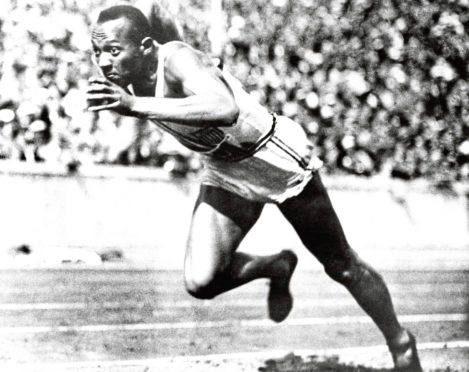
One of the most iconic moments in Olympic history was also an early symbolic stand against a growing fascist regime.
Eighty-four years ago this week, African-American sprinter Jesse Owens stunned the world by winning the 100m sprint in 10.3 seconds at the 1936 Berlin Olympics.
His victory marked the start of a record-breaking winning streak that shattered the Nazi theory of a superior Aryan “master race” and infuriated Germany’s Fuhrer, Adolf Hitler.
The iconic sporting competition held in the heart of Nazi Germany was supposed to send a strong message to the world, with German athletes expected to dominate the Games.
But Hitler didn’t bank on the talented American sprinter, who was born James Cleveland Owens in Oakville, Alabama, on September 12, 1913.
The day after his first gold medal, Owens flew into the history books again when he triumphed in the long jump with a leap of 8.06 metres, ahead of German competitor Luz Long.
It later emerged Long had given Owens some friendly and ultimately helpful advice on his technique ahead of the jump.
On August 5, he secured his third Olympic gold medal when he won the 200m sprint in a record-breaking time of 20.7 seconds.
On the day of the he 4×100m sprint relay, on August 9, Team USA’s head coach decided that Owens and his teammate Ralph Metcalfe would replace American Jews Marty Glickman and Sam Stoller.Owens protested at the time but went on to win another gold and set a new world record of 39.8 seconds in the relay.
Owens said his secret was that “I let my feet spend as little time on the ground as possible. From the air, fast down, and from the ground, fast up”.
Hitler notoriously only shook hands with German athletes on the first day of the Games and refused to meet any competitors after that. Behind closed doors, he was “highly annoyed” with Owens’ dominance in the top track events.
Owens’ celebration of his astonishing achievement were short-lived as he returned to the USA.
Following a New York City parade of Fifth Avenue in his honour, Owens was not allowed to enter through the main doors of the Waldorf Astoria New York. Instead, he had to travel up to the reception honouring him in a freight elevator.
President Franklin D Roosevelt (FDR) never invited the four-time gold medallist to the White House following his triumphs at the Olympic Games.
Owens said: “Hitler didn’t snub me – it was FDR who snubbed me. The president didn’t even send me a telegram.”
In 1955, President Dwight D Eisenhower honoured Owens by naming him an “Ambassador of Sports”.
The legendary sprinter’s record-breaking haul of four gold medals was not equalled until 1984, when Carl Lewis won gold in the same events at the Los Angeles Games.
Owens died from lung cancer in 1980. While he never raced competitively again after the Olympics, Jesse Owens’ legacy is celebrated to this day.
His hometown dedicated the Jesse Owens Memorial Park and Museum in his honour in 1996, at the same time the Olympic Torch was carried through the community 60 years after his Olympic victory.

Enjoy the convenience of having The Sunday Post delivered as a digital ePaper straight to your smartphone, tablet or computer.
Subscribe for only £5.49 a month and enjoy all the benefits of the printed paper as a digital replica.
Subscribe